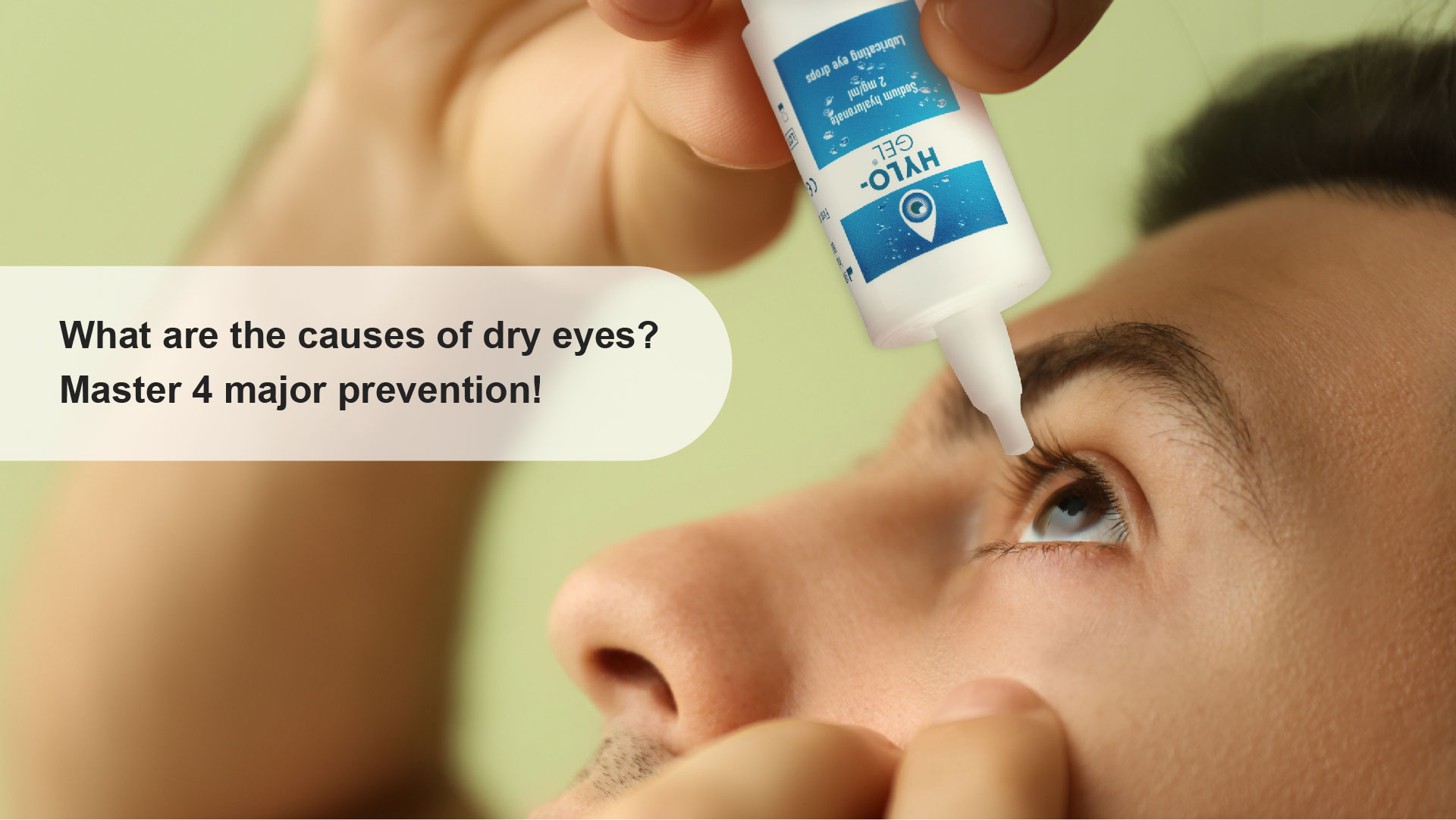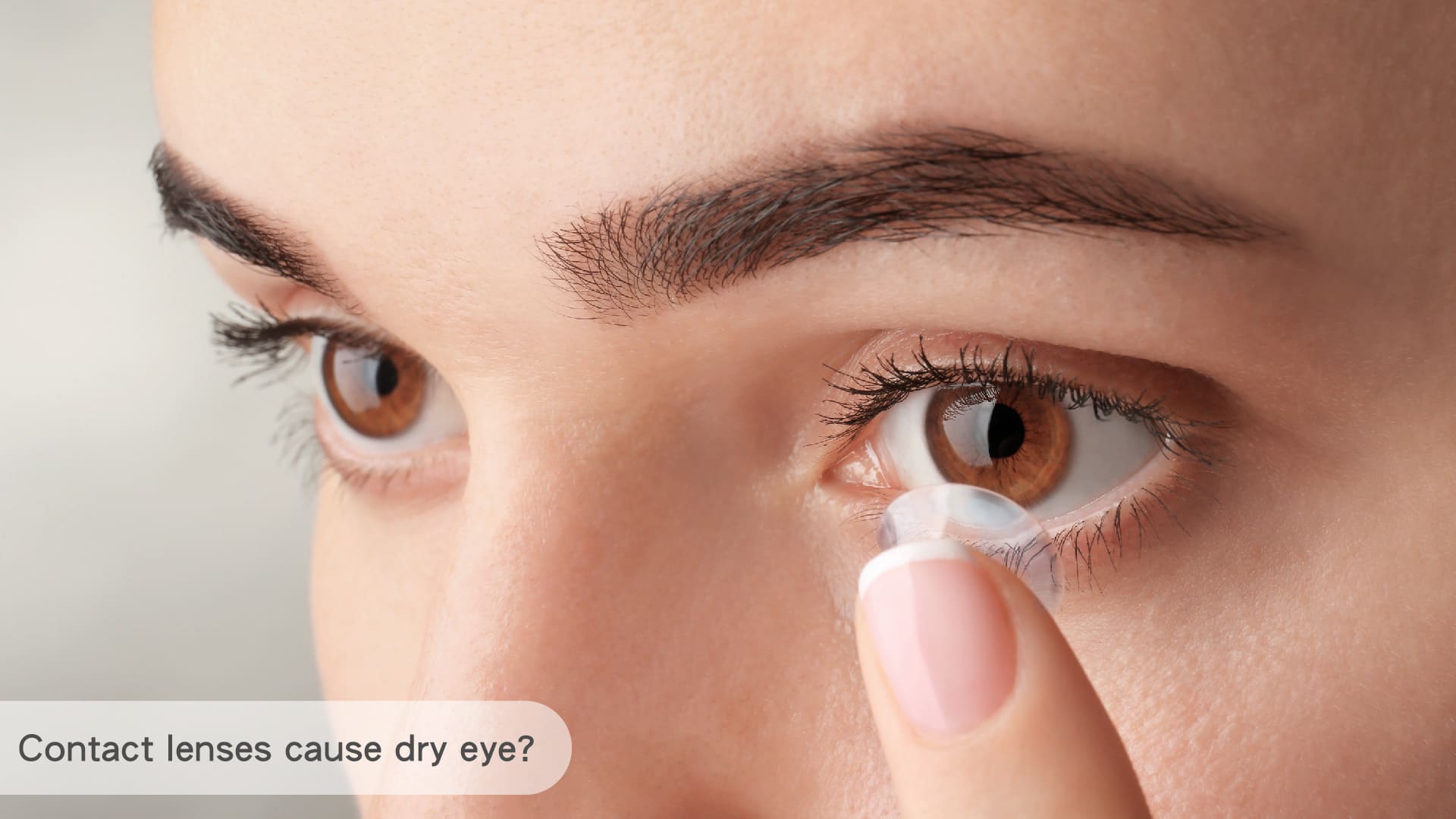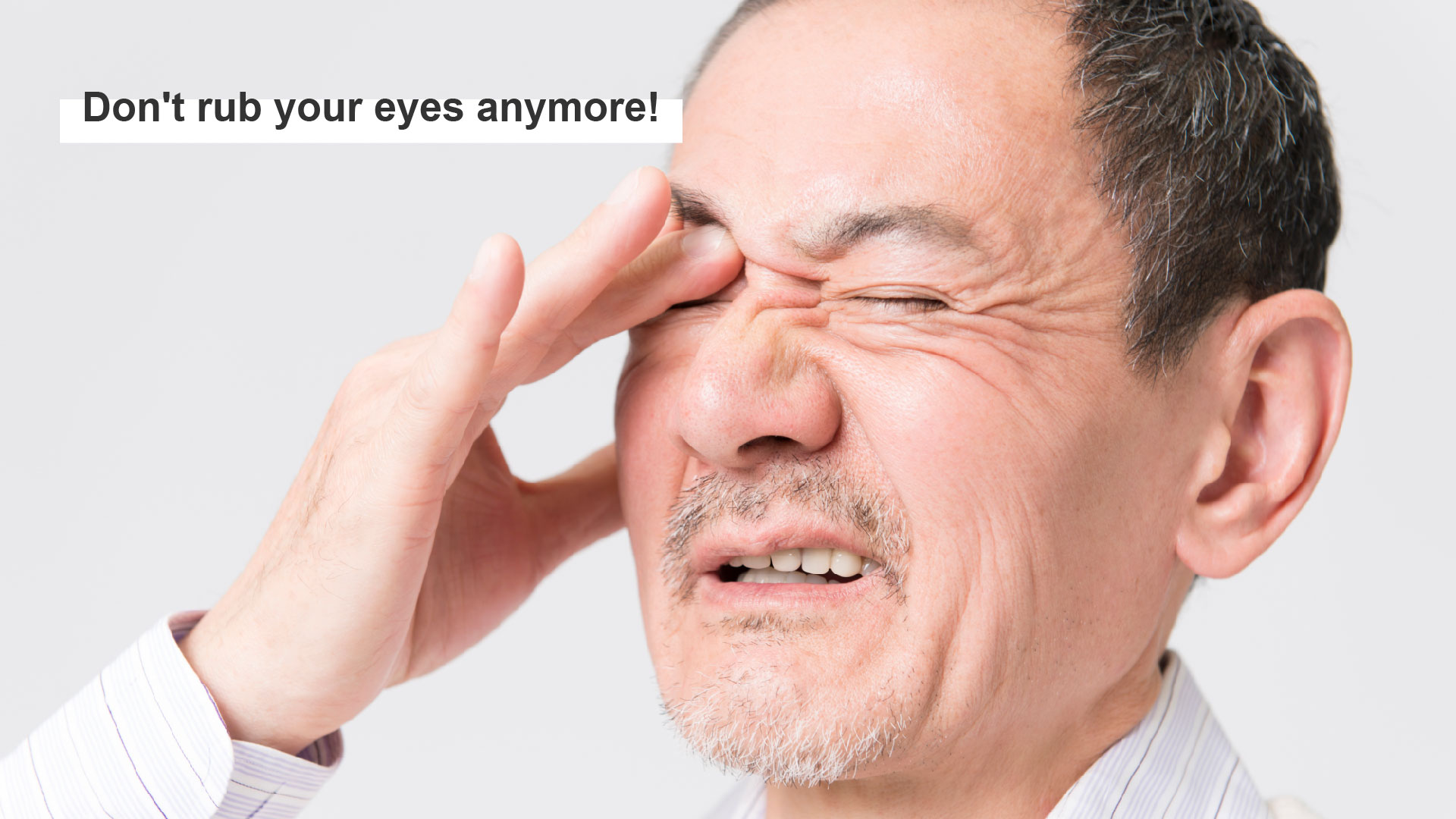What are the causes of dry eyes?
The eyes are the “windows of the soul” for humans. Charming eyes leave an excellent first impression. However, the effect might be diminished if the eyes appear tired, dry, and red. A three-layer structure forms the eye’s outermost layer called the tear film.
The eye surface requires adequate tears to function and maintain optimal conditions. Dry eye syndrome is one of the diseases of modern civilization. According to estimates by the Chinese University of Hong Kong, approximately 30% of people in Hong Kong suffer from dry eye syndrome*. High-risk factors include prolonged exposure to electronic screens, aging, hormonal influences in women, diabetes or autoimmune diseases, and long-term use of medications such as antihistamines or blood pressure medications, among others.
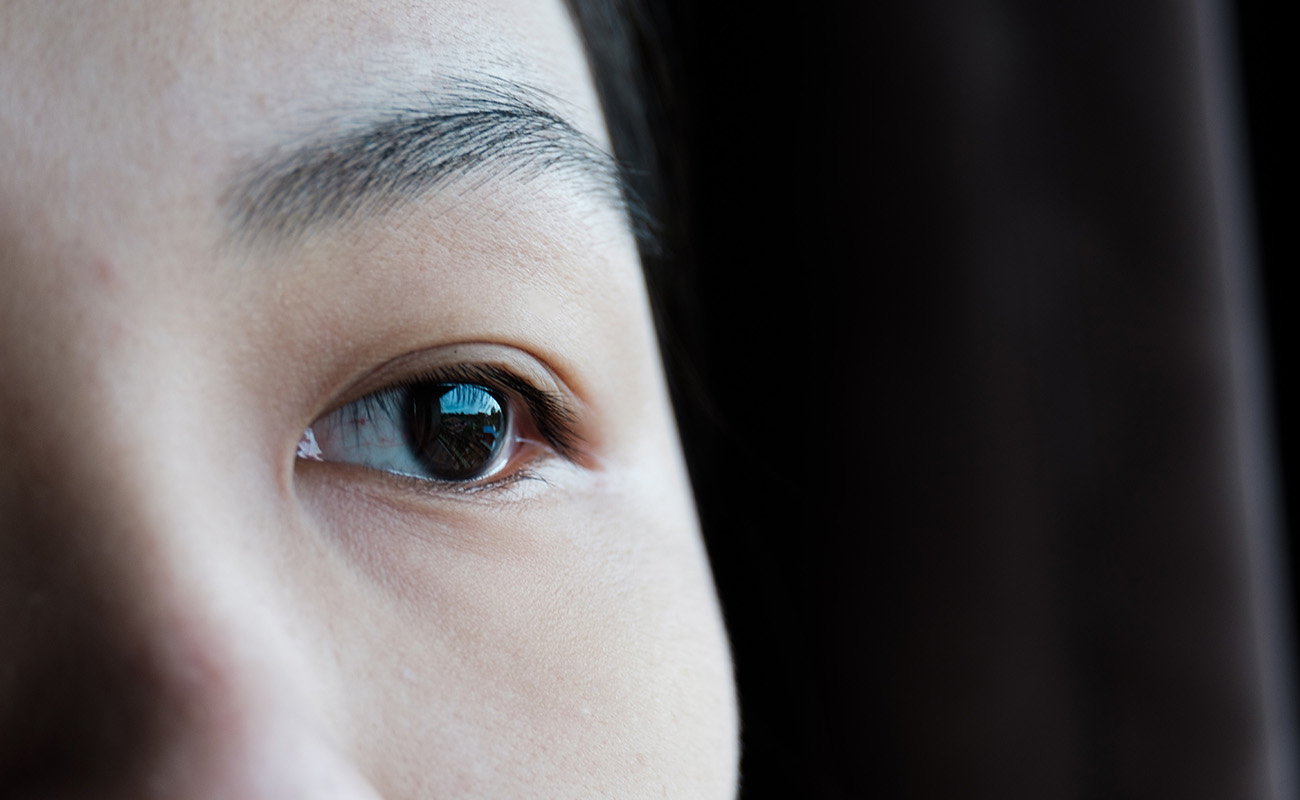
4 risk factors for dry eye syndrome
1.Imbalance composition of tear film
Tears are not just composed of water; they also contain oil and mucus.
- The outer oil layer helps reduce water evaporation.
- The middle aqueous layer has a higher oxygen content and contains antibodies and enzymes responsible for sterilization and metabolism. Most eye drops or artificial tears target problems with this layer.
- In direct contact with the cornea, the bottom mucin layer provides a uniform coating to protect the cornea from external stimuli and damage. Any imbalance in these layers can lead to dry eye symptoms.
2.Excessive evaporation of the tear film
Reasons for excessive tear evaporation include:
- Environmental factors: include continuous exposure to strong winds, smoke, or arid air.
- Infrequent blinking: most likely to occur during prolonged periods of concentration, such as reading, driving, or using computers and smartphones.
- Meibomian gland secretion dysfunction: Meibomian gland dysfunction causes inadequate oil secretion, thinning of the tear film’s oil layer, and rapid water evaporation.

3.Insufficient tear secretion
Common causes of insufficient tear secretion include:
- Aging of the eyes: most common in people over 40 years old.
- Patients with autoimmune diseases: such as systemic lupus erythematosus, rheumatoid arthritis, and diabetes, may also experience decreased tear gland secretion.
- Eye surgery: Some people undergoing eye surgery, including LASIK for myopia or presbyopia, may experience temporary dry eyes after surgery.
- Inflammation of the tear glands or damage caused by exposure to radiation.
- Drug effects: The use of antihistamines, antidepressants, vasoconstrictors, sleeping pills, contraceptives, or hormone replacement therapy for menopausal syndrome may also reduce tear gland secretion.
4.Long-term wear of contact lenses
There are two main types of contact lenses: soft contact lenses and hard contact lenses.
Soft contact lenses:
- Most popular.
- Less likely to cause discomfort, higher acceptance
- Most colored contact lenses are soft contact lenses.
- RGP contact lenses require consideration of eye curvature, size, and different designs. Opticians mainly recommend soft contact lenses.
Cons of soft contact lenses:
- Lower oxygen permeability compared to hard contact lenses and prolonged wear can cause corneal abrasions. Therefore, it is recommended that you wear them for at most eight hours.
- Soft contact lenses are hydrophilic, unlike hard contact lenses, which are non-hydrated. Soft contact lenses may absorb moisture from the eyes, leading to dry eyes. Placing a highly absorbent sponge in a moist area will absorb all the nearby moisture. Similarly, it will absorb moisture when placed in the eye, leading to dry eye syndrome.
- Soft lenses cause more severe dry eyes than hard contact lenses because they cover the entire iris, making the corneal nerves less sensitive and unable to stimulate normal reflex tears, leading to reduced tear exchange.
Hard contact lenses:
- Low risk of causing dry eyes.
- Low risk of allergies compared to soft lenses. If soft lenses are not cleaned with protein removal solution or enzyme tablets every week, it may lead to inflammation and abrasions of the eyes.
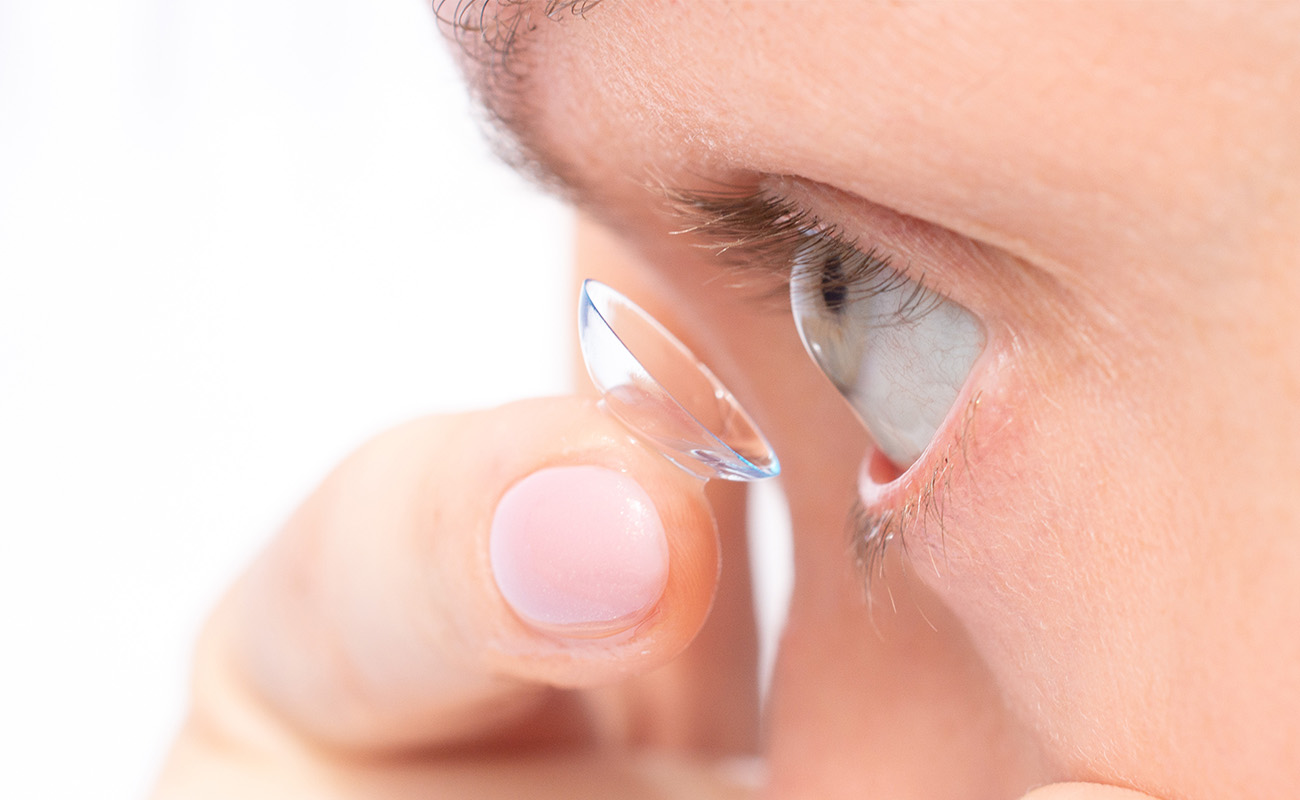
How to prevent dry eyes? Master 4 major prevention!
- Use eye drops with natural ingredients and preservatives-free:
Most eye drops on the market for treating dry eyes are chemically synthesized, with limited age applicability. Choosing eye drops containing natural ingredients, such as hyaluronic acid, is recommended.
Although preservatives can extend the shelf life of eye drops, they can also damage the normal tissues on the eyes’ surface. Long-term eye drops containing preservatives may cause discomfort, unstable tear film, and allergic reactions. Therefore, products without preservatives should be given priority to avoid secondary damage to the eyes. - Heat treatment or eye massage:
Heat treatment can promote blood circulation around the eyes and relax muscles, help increase tear secretion, and clear blocked meibomian glands, relieving discomfort caused by wearing contact lenses. An eyelid heating pad or an eye care warm compress pad at about 45 degrees Celsius for 5 minutes per session is recommended. - Take regular breaks for the eyes:
After reading or using a computer for 50 minutes, take a 10-minute break and look into the distance. Blinking is involuntary, but remind yourself to blink more frequently and forcefully.Do not blink halfway and then retract your eyelids, as the lower half of the eyeball will not be moistened, or blink and close for a few seconds to allow the eyeball to be moistened. Moreover, do not wear contact lenses while sleeping to ensure the eyes get adequate rest. - Ocular nutrients to improve moisture:
Although lutein and zeaxanthin help filter harmful light, such as blue light, their leading role is to reduce macular degeneration. They do not help combat dry eye syndrome. To improve dryness, it is recommended to choose supplements containing bilberry and high-concentration fish oil (Omega-3), which can increase tear secretion, maintain eye moisture, improve tear film structure, help maintain normal vision, and enhance eye comfort.
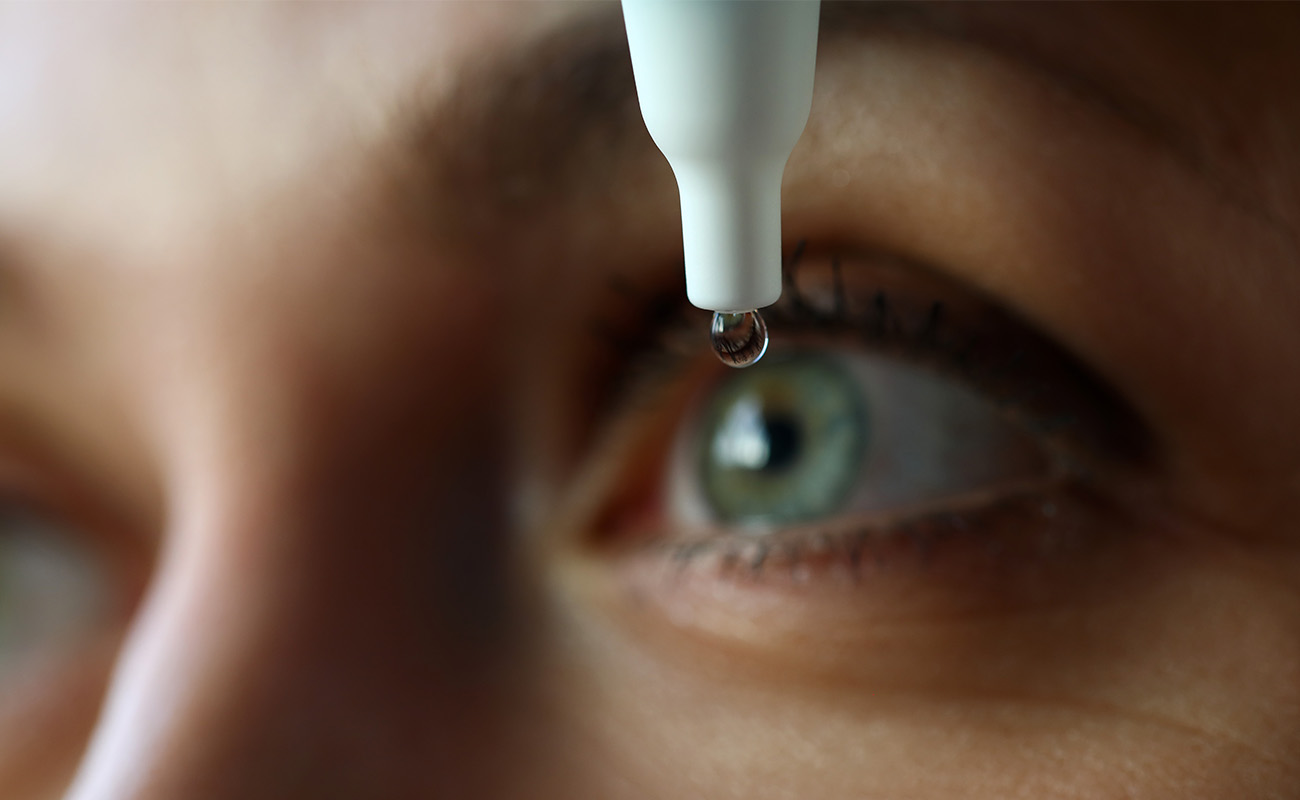
If you have the above conditions or concerns, we recommend using the Ursapharm Hylo® series.
Various eye drops are on the market, and patients should consider the ingredients and efficacy. Below is a recommendation for Ursapharm Hylo Gel® as a daily moisturizer to alleviate insufficient of tear film::
- Preservative-free and patented bottle design: Using the COMOD®-System patented technology, the eye drops are kept in a sterile state and sealed environment without the need for preservatives, maintaining the quality of the eye drops.
- Drop-by-drop dosage Design: The COMOD® dosage system makes dispensing precisely one drop per pump stroke possible. This means the contents go a long way. The drop dispensed is the same size, producing a constant, reliable effect.
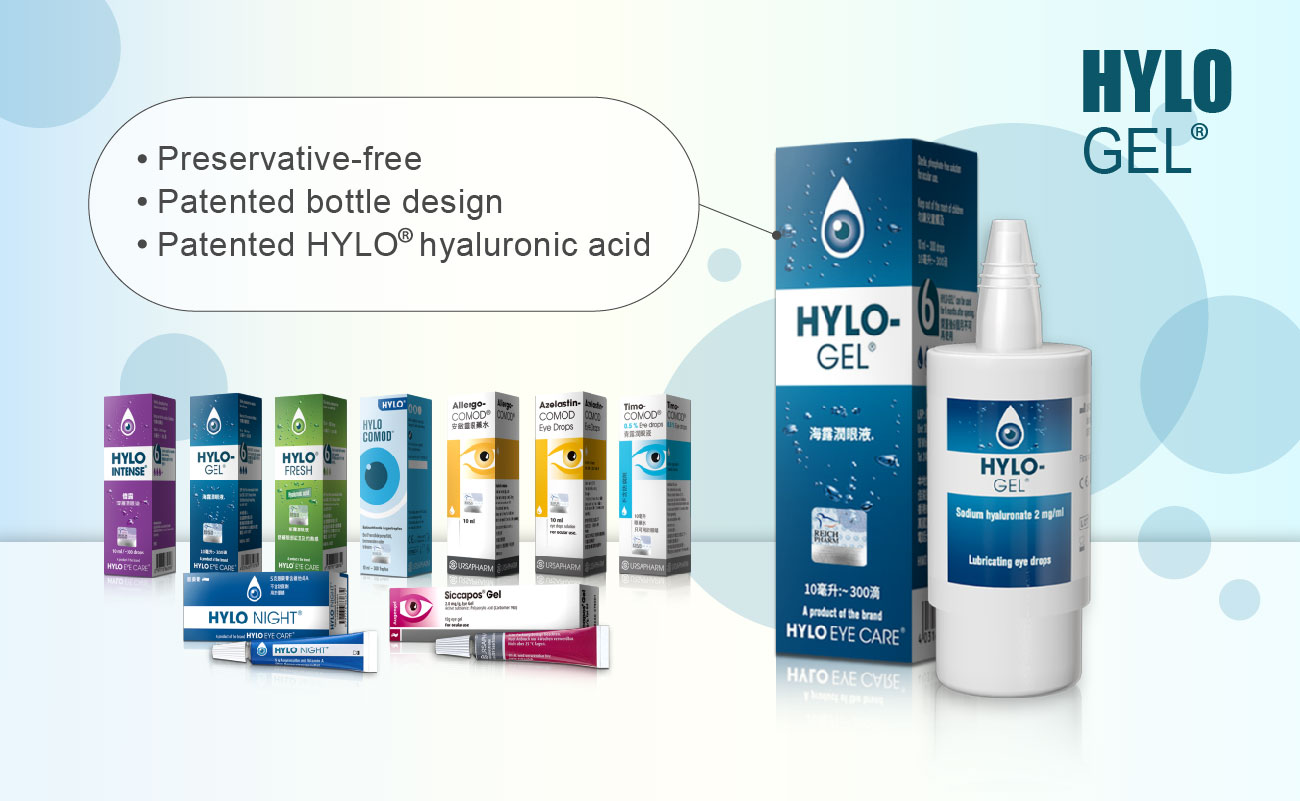
Friendly reminder: Consult your healthcare provider or pharmacist for advice before using this product if you are:
1. Pregnant or breastfeeding.
2. Infants or children.
